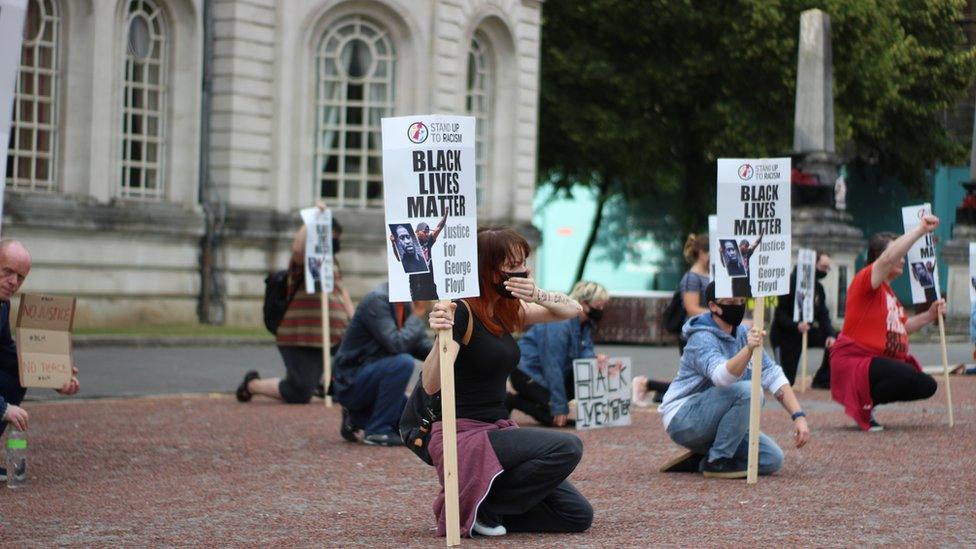Black Lives Matter: My identity crisis over history lessons
- Published
'We have faced racial prejudice in Wales'
Nearly a month after a petition was launched to get black history taught to pupils across Wales, Dominic Francis finds out more about why this issue matters.
The question I ask myself every day is who am I?
I was born and brought up in Wales. I speak Welsh and I went to a Welsh-language school.
I sat through classes about British history and culture and yet the thing I never saw was people like me, a person of black and white descent, being reflected in any of our lessons. My mum is a white woman with Welsh heritage and my dad is a black man with Jamaican heritage.
And yet everything I learned in our history lessons was about white Britain. It was like black Britain didn't count. Certainly not enough to be taught about anyway.
And now aged 22, I am struggling with why? Why wasn't I given the opportunity to learn about my black heritage and my black culture and my black history?
Why was it left for me to learn these things as an adult?
Why wasn't black Britain considered relevant enough to teach to me and my classmates when I was at primary and secondary school?
Am I not as British as the people I sat in class with? Why is only half of my culture being taught? I would ask myself this every time I sat down in our history lessons.
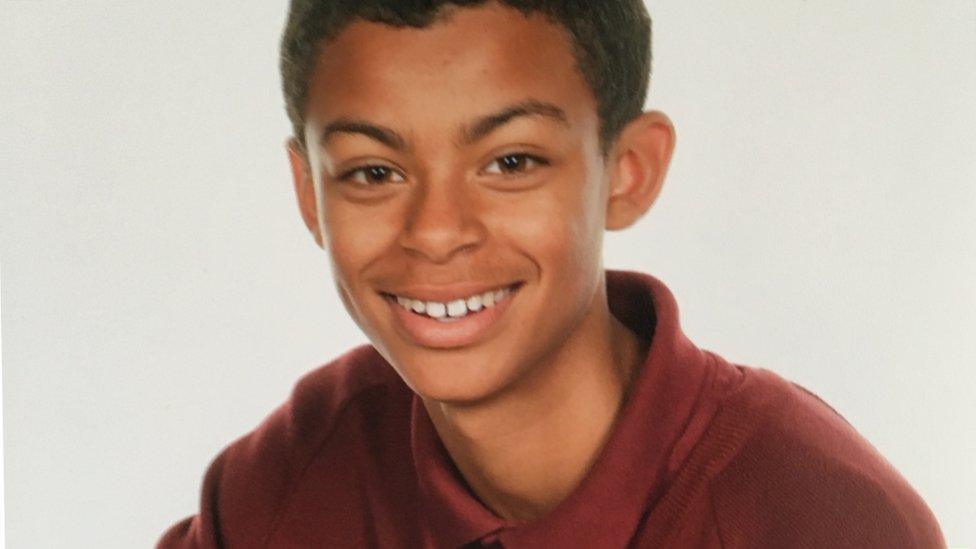
During school, Dominic's history lessons were centred on white history
And it seems I am not alone.
Just last month, following the killing of George Floyd by a white police officer in America, a petition, which has attracted 35,000 signatures, was started asking that school pupils in Wales be taught about black history.
Throughout my time in school, teaching black history, culture and heritage was neglected and it has had an effect on me and my identity.
But it also had an effect on my fellow pupils who had also not been taught about black history and culture. They would touch my hair or label me with ignorant terms but was this really their fault if they were uneducated about my heritage?
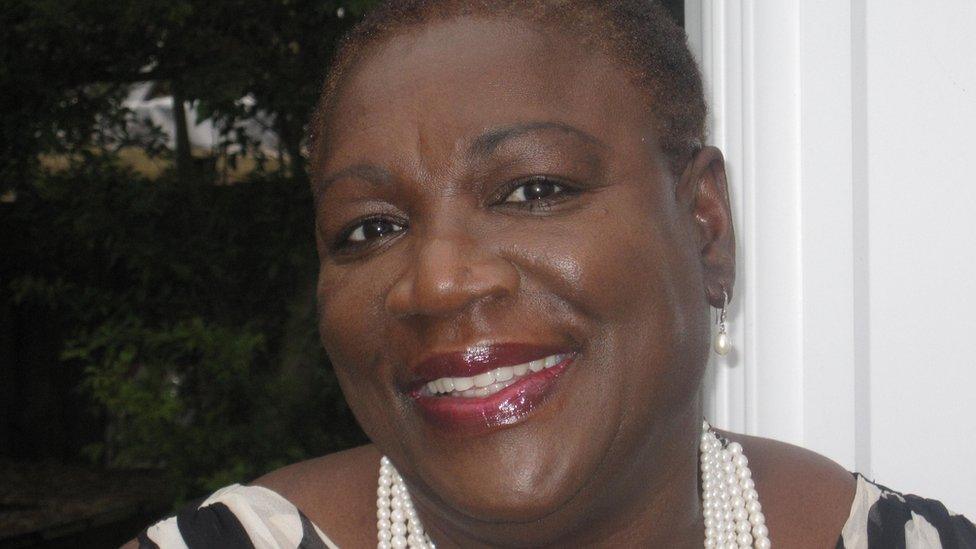
Hadassah Radway who used to teach at a school in Newport and has seen the effect of ignoring teaching about black history and culture has had not just on identity but on the expectations of black people too.
"The lack of seeing more black people in positions of authority as politicians, scientists, teachers, bankers... is systemic," she said.
"And, in my opinion, the powers that be have a vested interest in keeping the narrative that they have conjured up over the decades - the black person is unambitious, anti-authority, not hard working, unable to achieve.
"Teaching accurate history won't only be beneficial for black and minority ethnic children, it will be beneficial for white children.
"That is the only way we will be able to eradicate racism, and racist practices and procedures in our government, health service, police, the educational system and housing," she added.
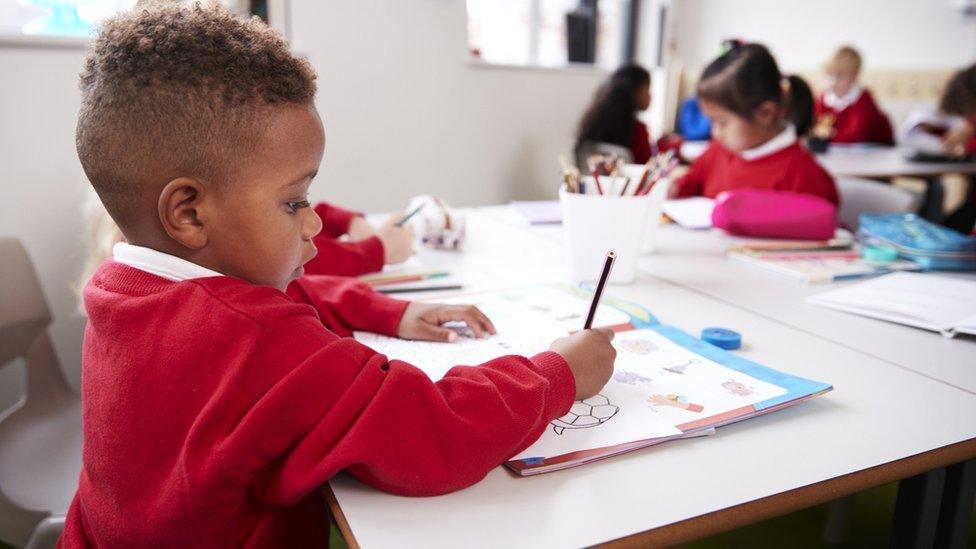
There are plans for a new curriculum in Wales
In 1999, following the racially motivated killing of Stephen Lawrence in London, 70 recommendations were made in a report by Sir William Macpherson. Among these were recommendations that the national curriculum followed by schools up and down the land should be amended to prevent racism and value cultural diversity.
Now, five years after I left school and as Wales prepares to launch its new curriculum for its schools, I wanted to find out whether learning black history was now going to feature in lessons taught to the next generation of pupils.
On Wednesday, Wales' Education Minister Kirsty Williams spoke about the issue to Members of the Senedd during a debate, external brought by Plaid Cymru's education spokeswoman Sian Gwenllian.
"The new curriculum must ensure that the next generation of children and young people in Wales learn about the history of BAME people in order to prevent racism and to promote cultural diversity," said Ms Gwenllian.
During the debate, there were representations from a number of politicians including Member of the Senedd, Neil McEvoy who said: "Black, brown, people of colour are part of Welsh history. We are Welsh history.
"We help make it... I identify as Welsh and happen to have brown skin, and what I want to see is a fully inclusive history of Wales, where we automatically learn about every community that makes up our country."
In response to what was said during the debate, the education minister said: "I feel strongly that we need to improve as well as develop our understanding, and to improve the way we support learning, the recent events in America, indeed, across the world, have reminded us all of the importance of all aspects of our history."
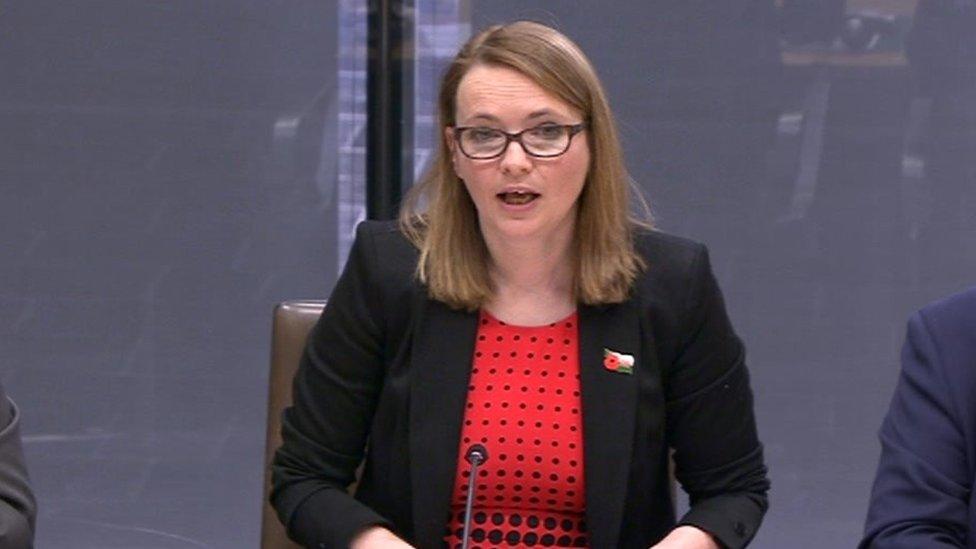
Wales' Education Minister Kirsty Williams has been working on a new curriculum
She said that the government would work with Wales' education standards body Estyn, on a review on Welsh history education to take "full account of black, Asian, minority ethnic history, identity and culture."
She went on to say the work under way on this issue would focus on more than just the subject of history.
"I want that to be a truly cross-curricular endeavour, including positive role models and learning through our wider cultural environment, including BAME contributions in Wales to literature, media, sport, the economy.
"It has to be about so much more than just the subject of history."
She added that there was an under representation of BAME communities in the education workforce: "I want our children to see their communities reflected in those that stand at the front of their classes."
But is this enough? And are we really doing enough to help shape, form and educate our children about their whole history and culture?
I spoke to Gaynor Legall, from the Heritage and Cultural Exchange project who gave information for a Senedd report on the Teaching of Welsh History, Culture and Heritage which was published in 2019., external
"What I find is sad is that it seems there is a school of thought that it's only about schools where there are black kids," she said.
"I think it's more important for schools where there are no black kids to teach them and inform them.
"One thing we need is more teachers - more black teachers.
"We need those teachers to be supported and we need the curriculum and materials in the schools and until we've got that combination, I don't think our kids will get a really good education," she said.
When I approached the Welsh Government over this issue, they provided me with this statement: "It is important for learning to be inclusive and to draw on the experiences, perspectives and cultural heritage of contemporary Wales.
"In the new curriculum, learners will explore the local, national and global contexts to all aspects of learning, and to make connections and develop understanding within a diverse society.
"We will work with Estyn to ensure that their review of Welsh history takes full account of Welsh, and wider, BAME history, identity and culture - and we will establish a working group to oversee the development of learning resources, and identify gaps in current resources or training. History is not only a matter for one lesson and one subject."
Even though what I hear is pretty promising I can't help but still be sceptical of what's to come.
I just hope that this really is the time our education system starts to acknowledge what should've been acknowledged a long time ago.
- Published18 June 2020
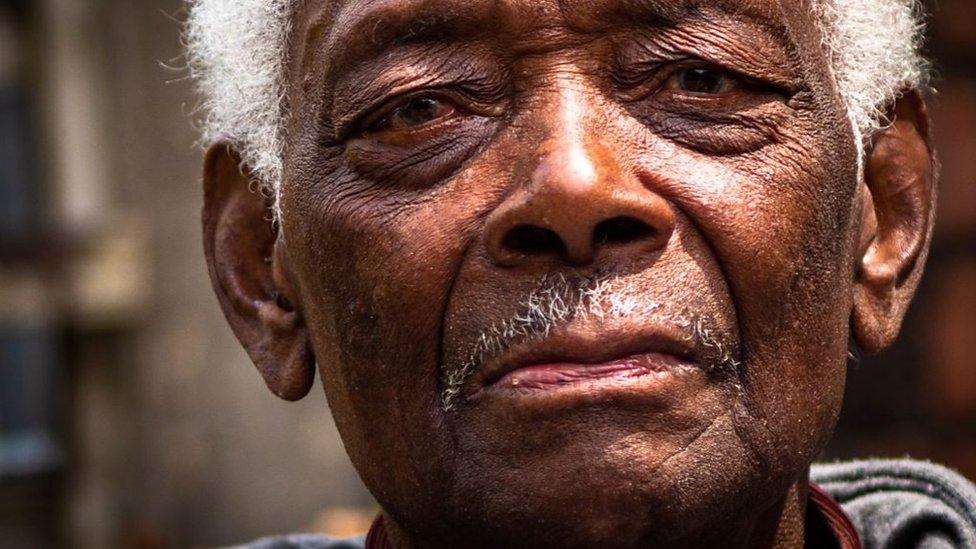
- Published5 June 2020
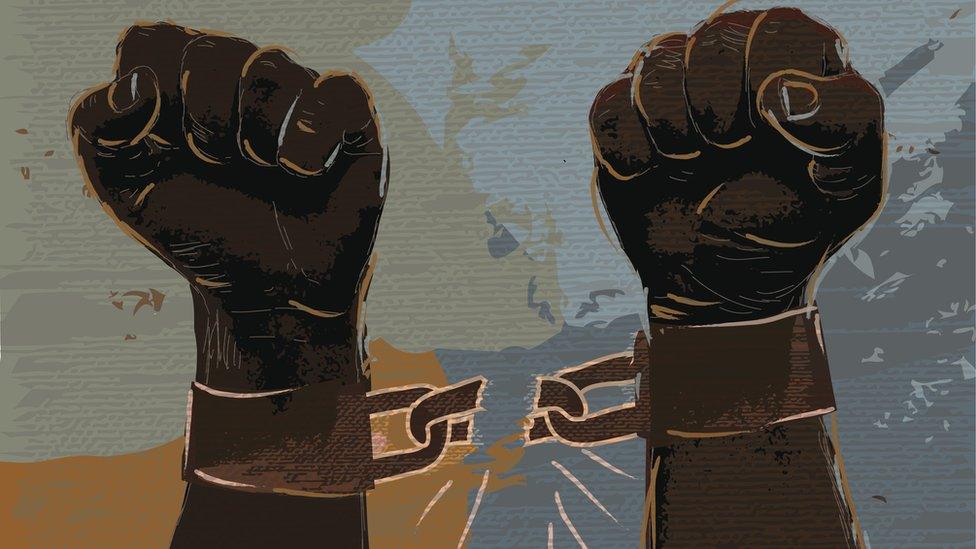
- Published22 June 2020
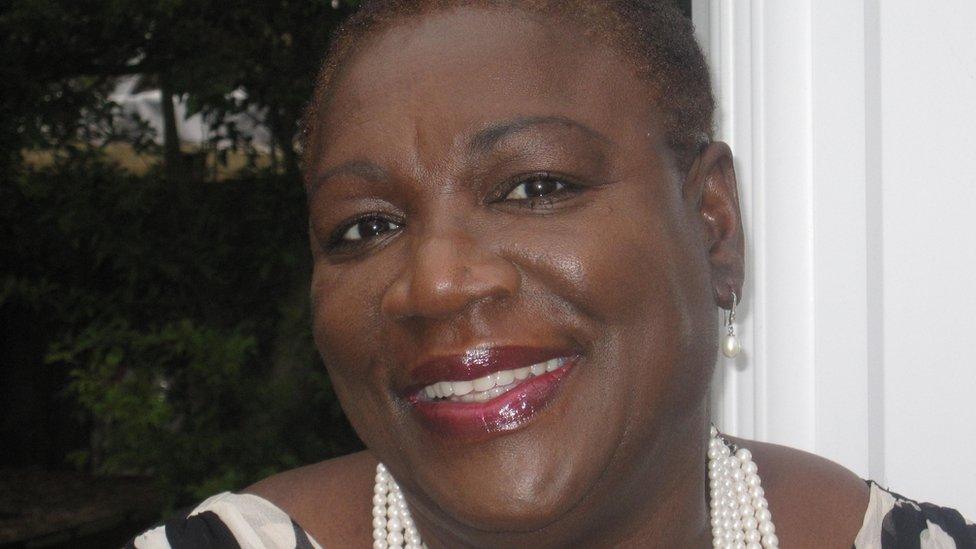
- Published18 June 2020
